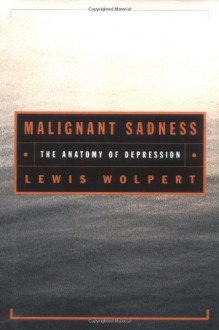Lewis Wolpert had it all -- a successful scientific career and a happy home life -- when his struggles with clinical depression began. Although he had often dealt with the blues, he had never been seriously depressed before the illness took over his life. Overwhelmed, he was no longer able to...
show more
Lewis Wolpert had it all -- a successful scientific career and a happy home life -- when his struggles with clinical depression began. Although he had often dealt with the blues, he had never been seriously depressed before the illness took over his life. Overwhelmed, he was no longer able to think properly, let alone work, and his mind turned to suicide. When eventually he recovered with the help of psychotherapy and drug treatment, Dr. Wolpert had to confront the stigma and shame attached to what he considered a terrible, but treatable, disease. It is an affliction that this accomplished biologist and writer -- astonished that he was vulnerable to what is so often classified as a mood or emotional disorder -- believed he had to try to understand in scientific and human terms. Frustrated by the lack of information available to those who battle depression, Dr. Wolpert decided to go public with his carefully guarded secret and his search for its causes. The result is "Malignant Sadness," a uniquely empathetic international bestseller that mines the core of one of society's most quietly pervasive illnesses. Although one in five of us will endure its pain and helplessness, depression remains obscured by a range of misconceptions. Part memoir, part scientific and historical inquiry, "Malignant Sadness" carefully weaves Dr. Wolpert's revelation of his own struggle with a succinct and humane discussion of everything that is known about depression and its treatments, from the history of the melancholy temperament to contemporary brain science. Is depression rooted in genetics, bad parenting, a single trauma, or a combination of causes? Do different cultures experience depressionin different ways? Can it be avoided altogether? His wide-ranging exploration of the two main ways science attempts to understand depression -- the biological and the psychological -- convinced Dr. Wolpert that we need a more holistic approach to helping those in its grip. Not since "Darkness Visible" has anyone created such a compelling picture of what it means to experience the disease that Wolpert so eloquently names "malignant sadness."
show less

